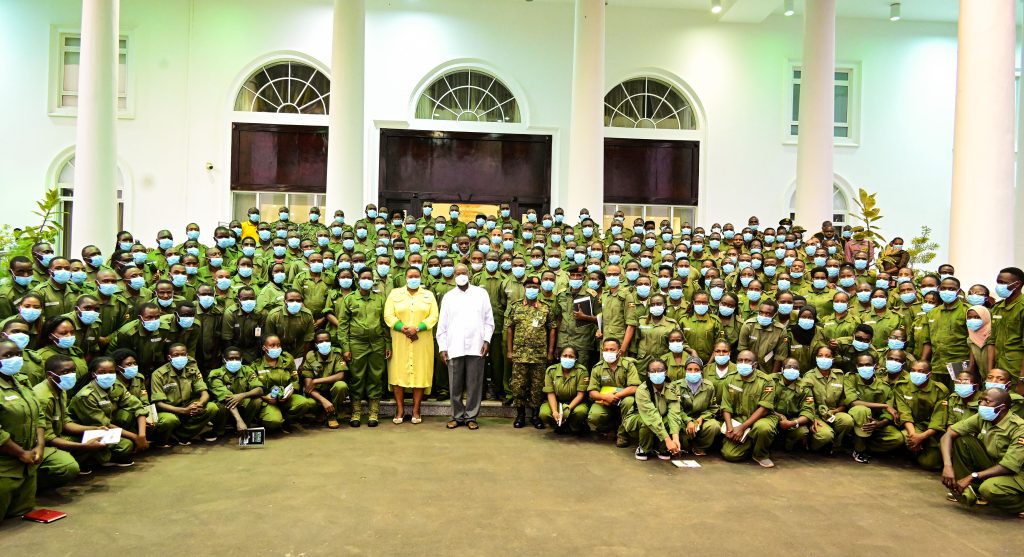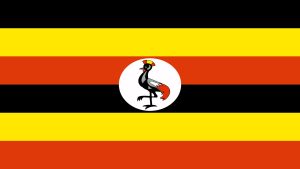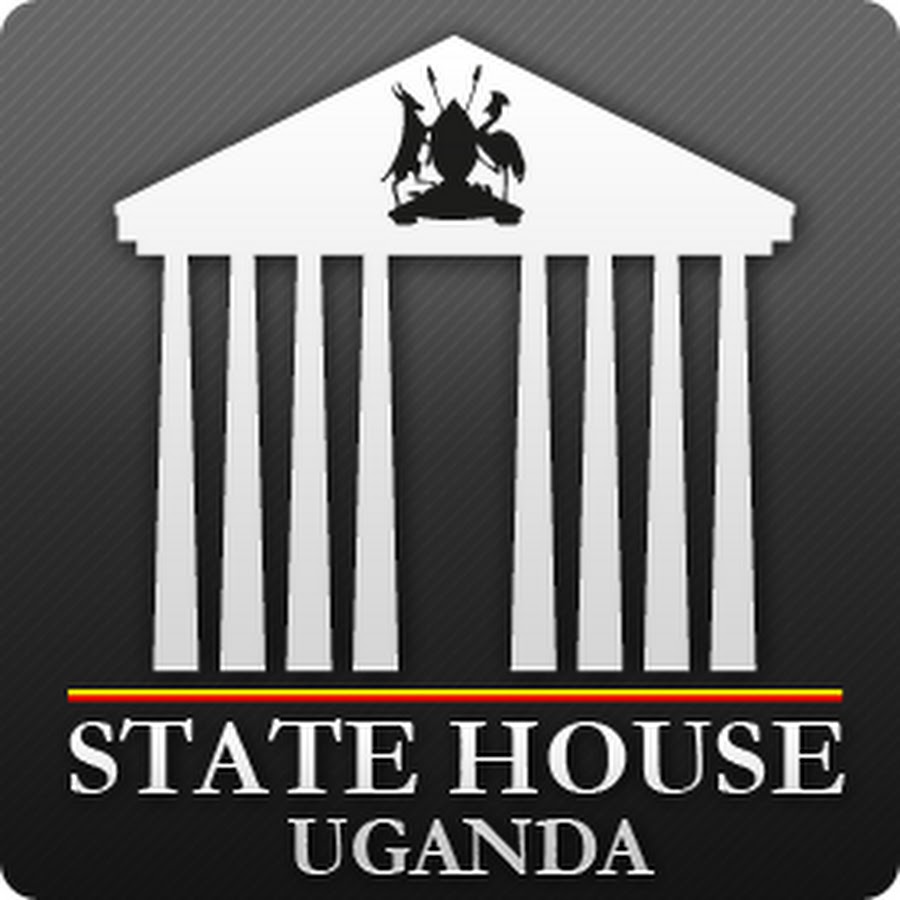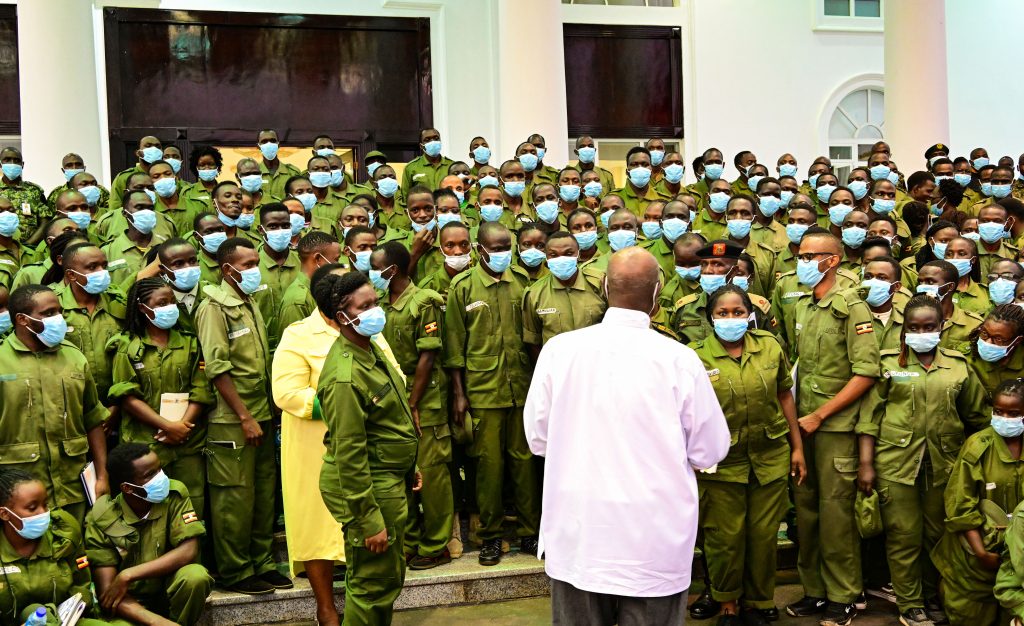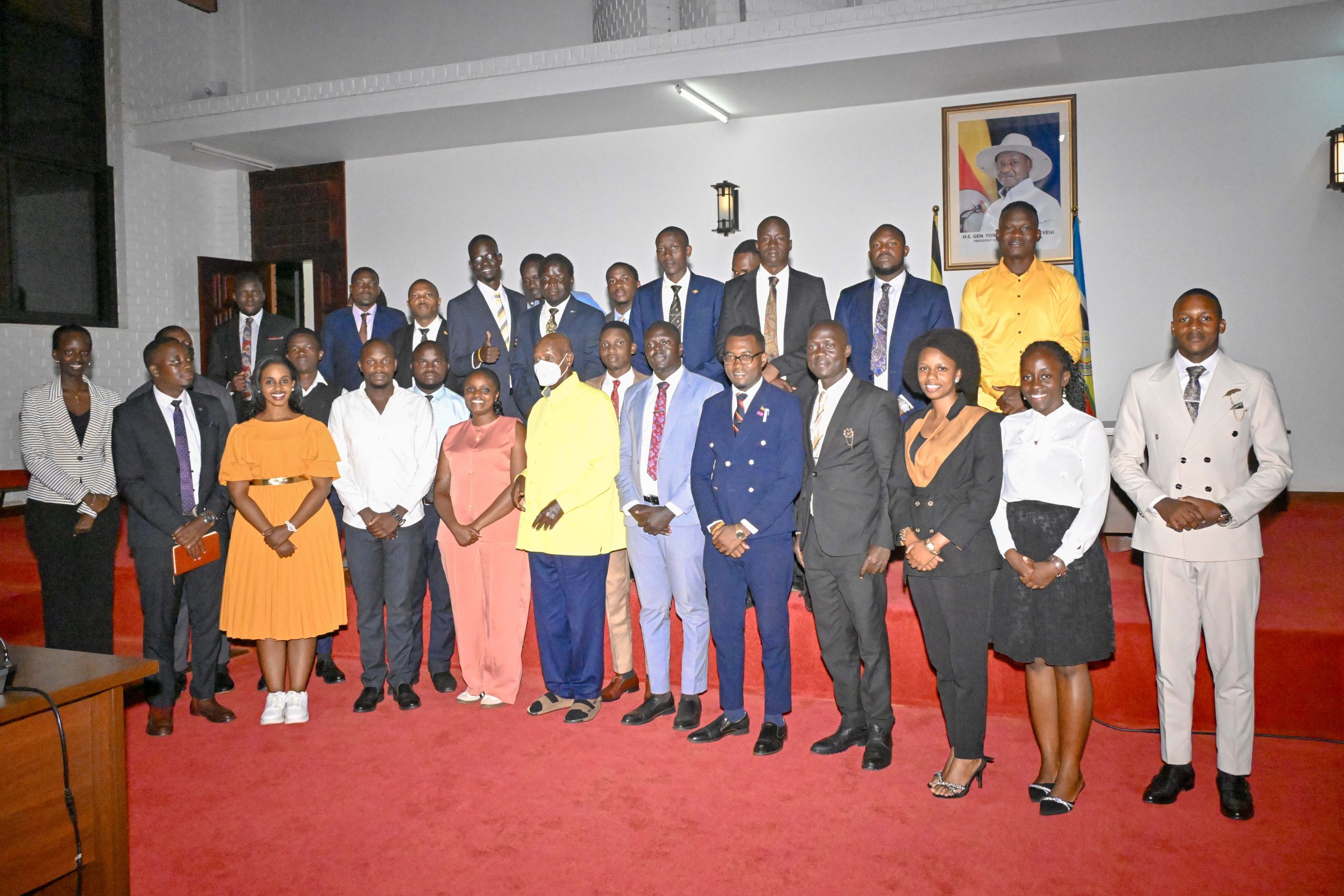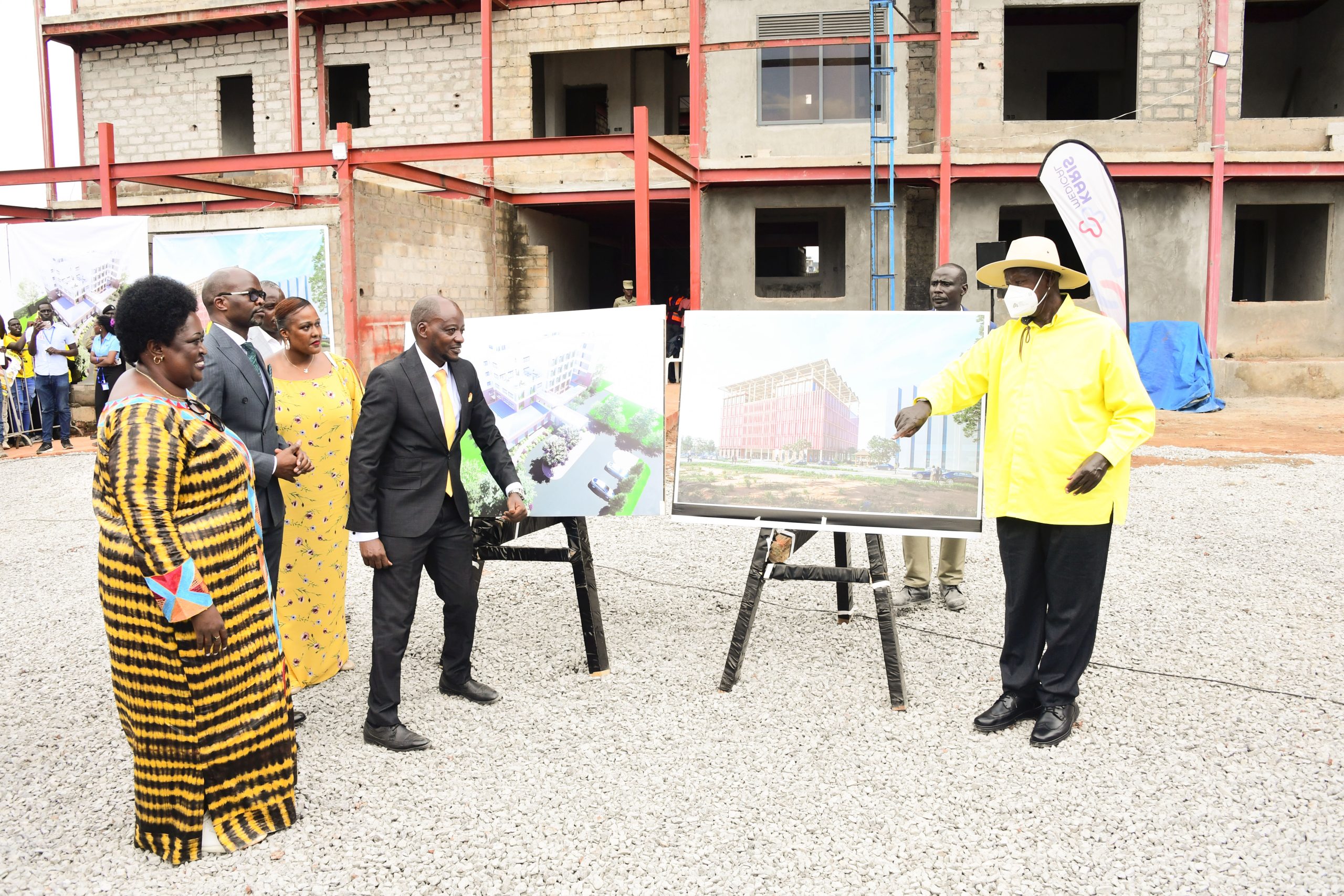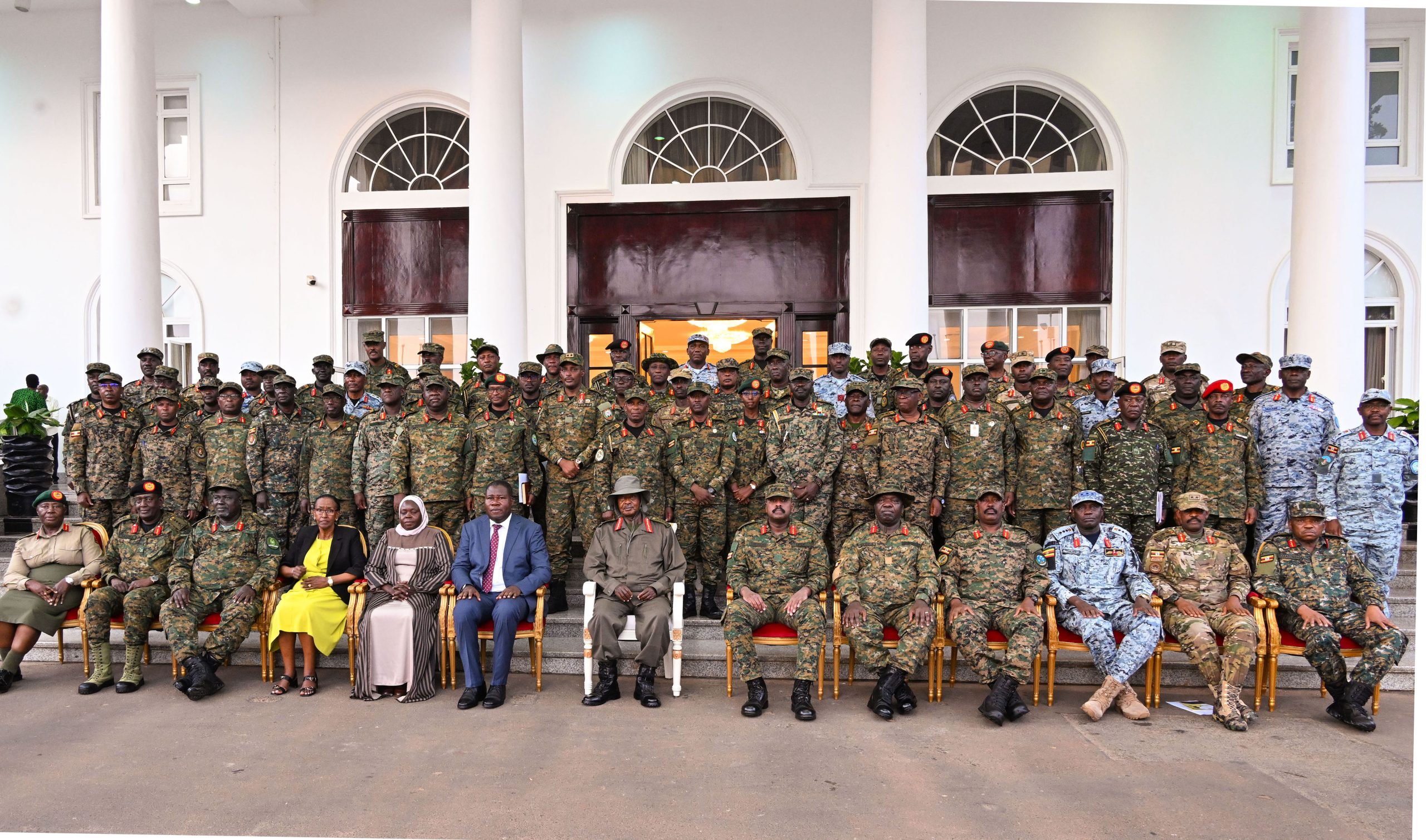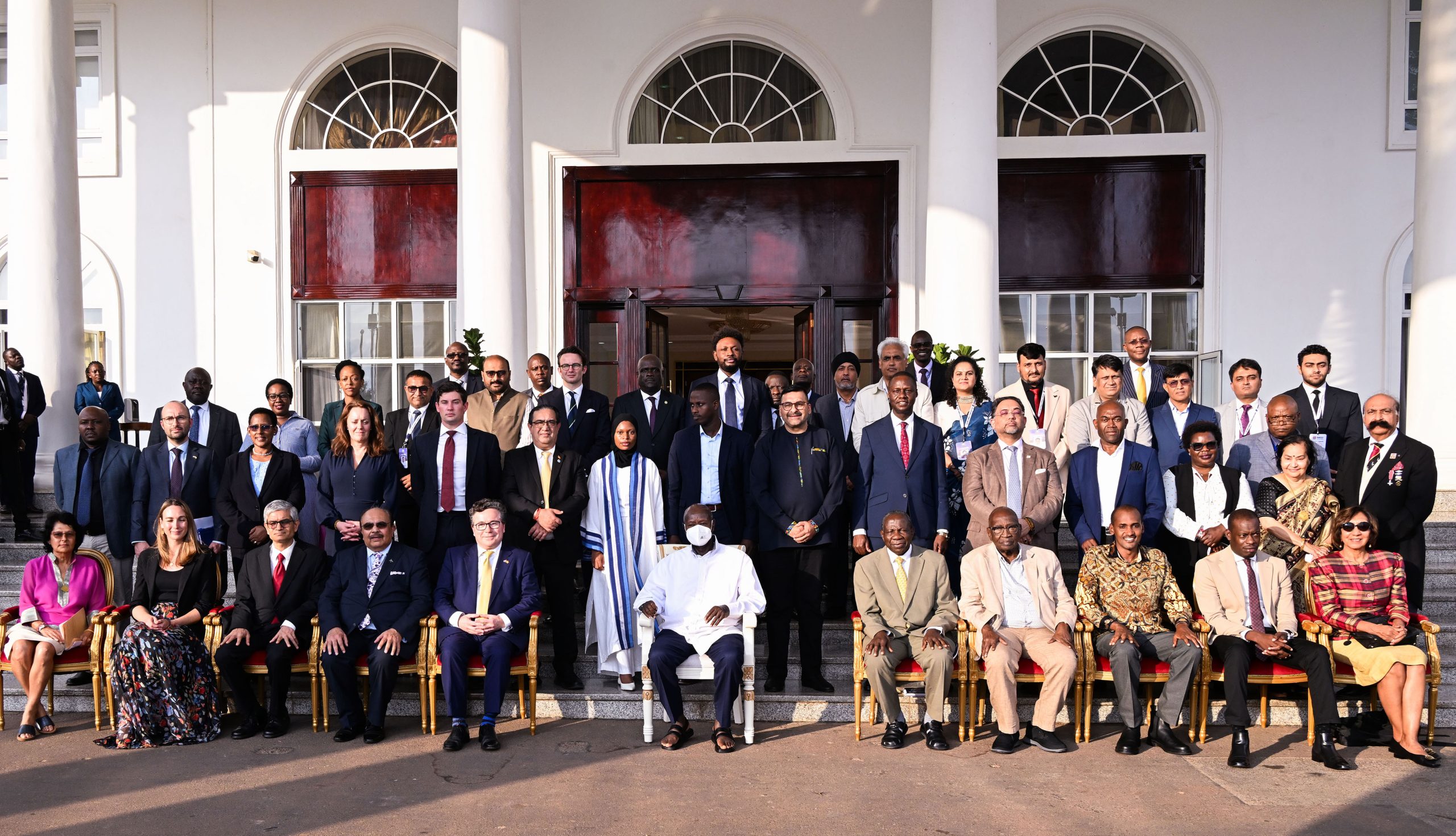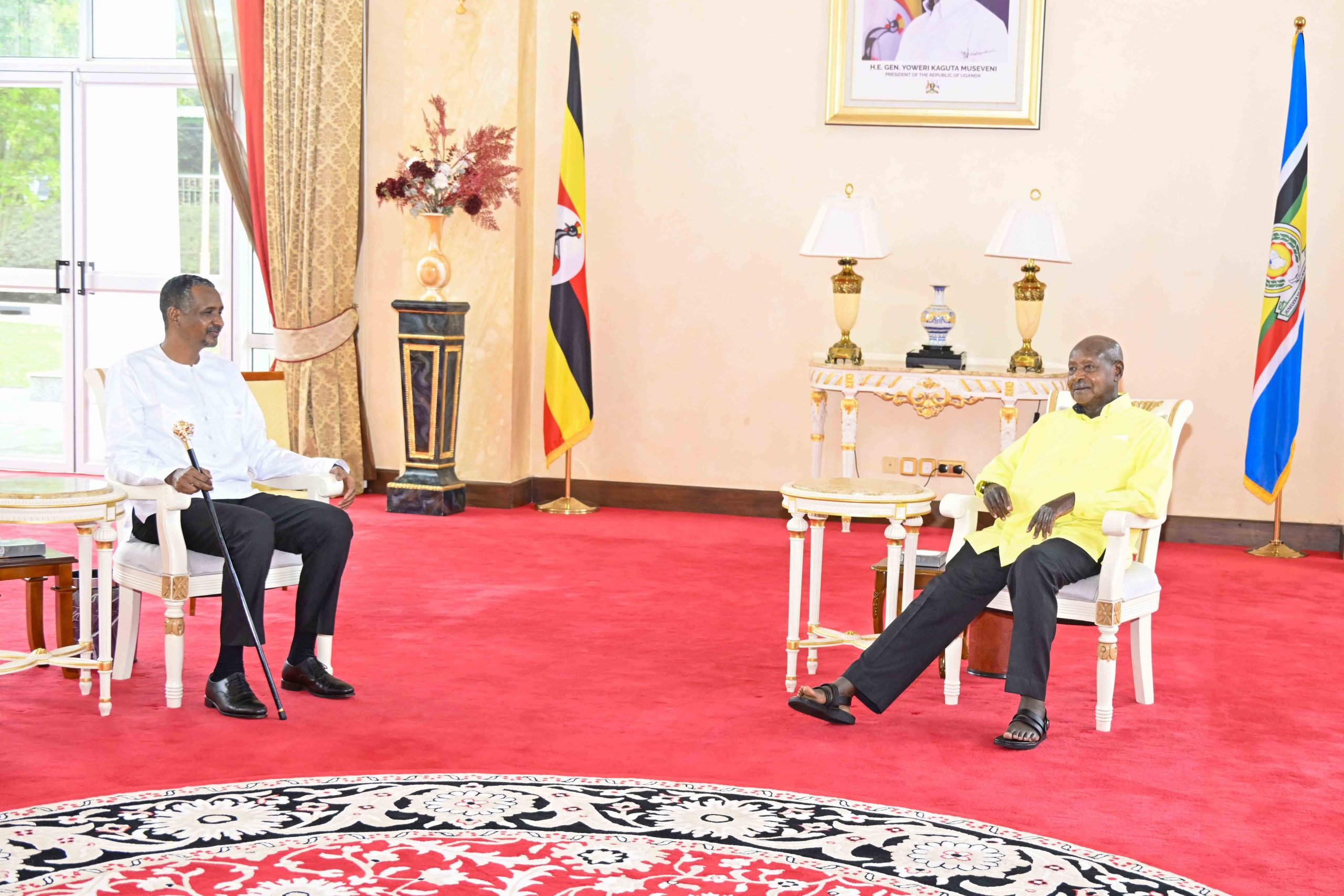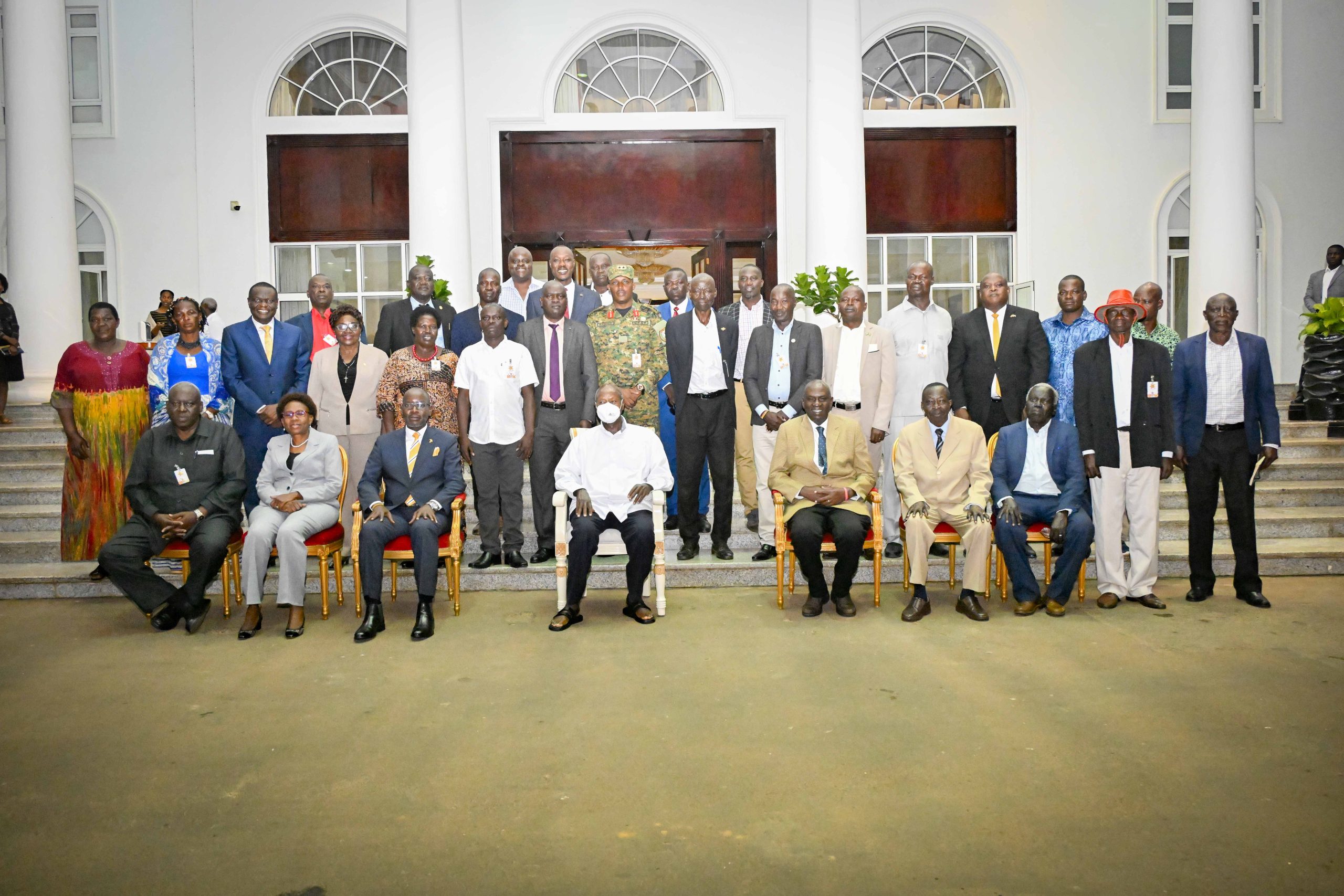The President proposed that to make the work easier, the person who has been sponsoring the medical student during the medical school should be the one to also sponsor him/her during internship.
“Who pays for the internship? Some people are saying that the government must pay but I think that is risky because the government would pay if it had money but it doesn’t have enough money since it has got a lot of things to do like roads, security etc. I don’t think it is okay to tie the future of our young doctors with government funding because it may delay or it may not be there,” he said.
President Museveni made the remarks on Saturday 24th August, 2024 while delivering a lecture of opportunity to 210 post-medical interns who had completed their 10-day patriotism and ideological training at the National Leadership Institute (NALI), Kyankwanzi.
The meeting took place at State House, Entebbe.
The President’s proposal comes at a time when a good number of medical interns are stuck over delay by the government to release funds for them to start their internship.
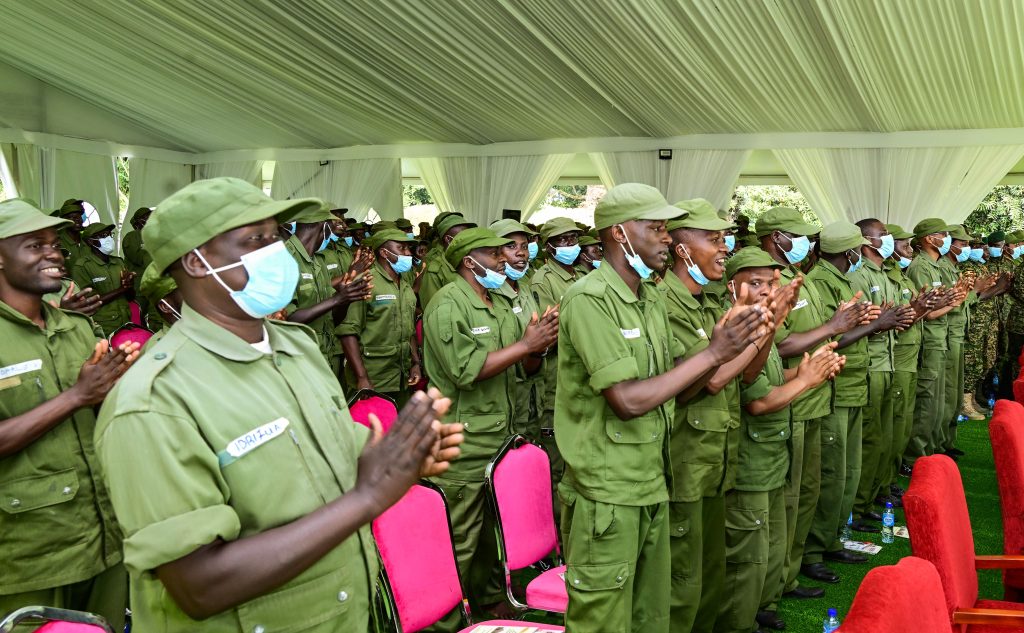
“Why don’t we agree that a person who has qualified as a medical doctor after five years in the medical school, continues with the internship but with sponsorship from the person who sponsored him in the first place? What is the problem? If someone was sponsoring you for five years, why does he stop now? There’s another demand from the government. I have been told that these interns need a supervisor. Are these supervisors enough?” he inquired.
“What I propose is that on sponsorship, we maintain the one who has been sponsoring you during the undergraduate, let him sponsor you. If it was the government, loan scheme or State House or your parents sponsoring, let them continue so that you do the internship, if you do that, you remove the issue of waiting for government money. The government must also hire enough consultants to supervise you. If we do this, I think it will make the work much easier. That is my proposal, you go and think about it.”
The President also lectured the post medical interns on how the National Resistance Movement (NRM) came into existence and the historical missions of the party.
“What is now the NRM started as a student movement in the 1960s, when we could not agree with the old political parties like the UPC, DP and Kabaka Yekka. Those political parties were emphasising the politics of identity based on tribe, religion and gender. When we examined it, it was wrong,” he said.
President Museveni further informed the medics that politics is like social medicine whereby in medicine, you must diagnose the sickness of a patient correctly, once the diagnosis is correct, then you can be able to provide a prescription/treatment and if the diagnosis is wrong, then the patient will not be cured and he may die.
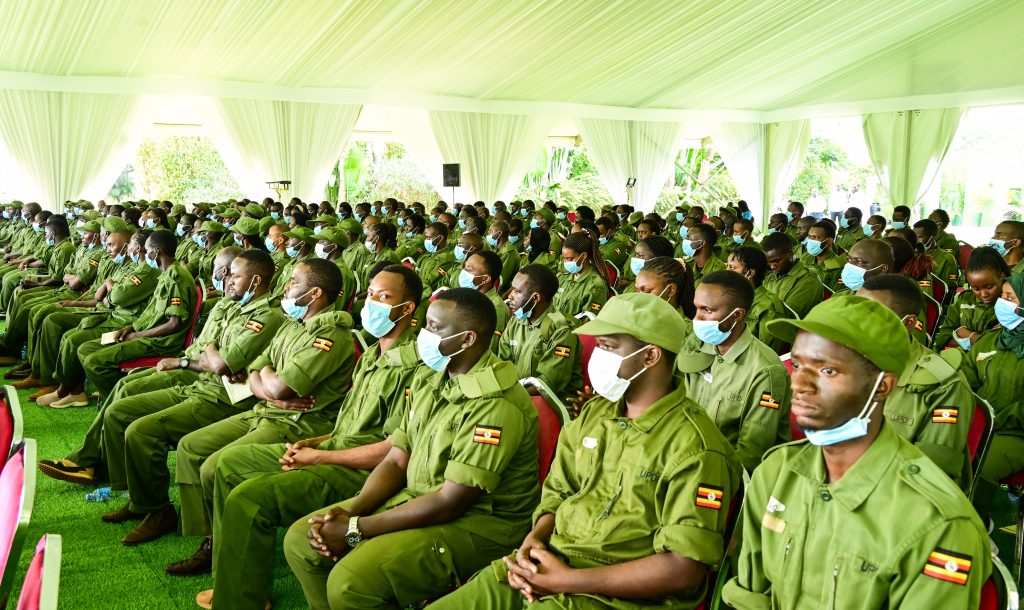
“The same with politics, you must diagnose what a group of people need, what they lack, what they are suffering from and what medicine can you prescribe for them. So, when we looked at that in the 1960s and we saw the wrong diagnosis of our old parties, we asked ourselves what do people need? They don’t lack clans or tribes. Why do you emphasise what they don’t lack, and you don’t attend to what they lack?” he wondered.
Furthermore, the President noted that in their analysis, they found out that Ugandans lacked prosperity and strategic security.
“That was our diagnosis as a student group. Then it became FRONASA, then UPM for a short period then it became NRM. We had to find the prescription for the people.”
Additionally, President Museveni revealed that prosperity can only be achieved by producing a good or a service and selling it to get money, continuously.
“Every adult must produce a good or a service and sell it but do so with a “kibaaro” (calculation). If that is the solution, then the next question is who will buy what you produce? This is where we knocked out the old political parties. We asked the question, if prosperity comes from producing a good or a service, then who buys what you produce?” he said.
“We found out the prosperity of a tribe is more from Uganda as a country than from the tribe itself. That is why we came up with the first principle; Patriotism (loving your country) because you need Uganda for your prosperity.
The President added that When people start producing more they will realise that the internal market is not enough, thus the need for an external market of Africa to help them buy the surplus products they produce.
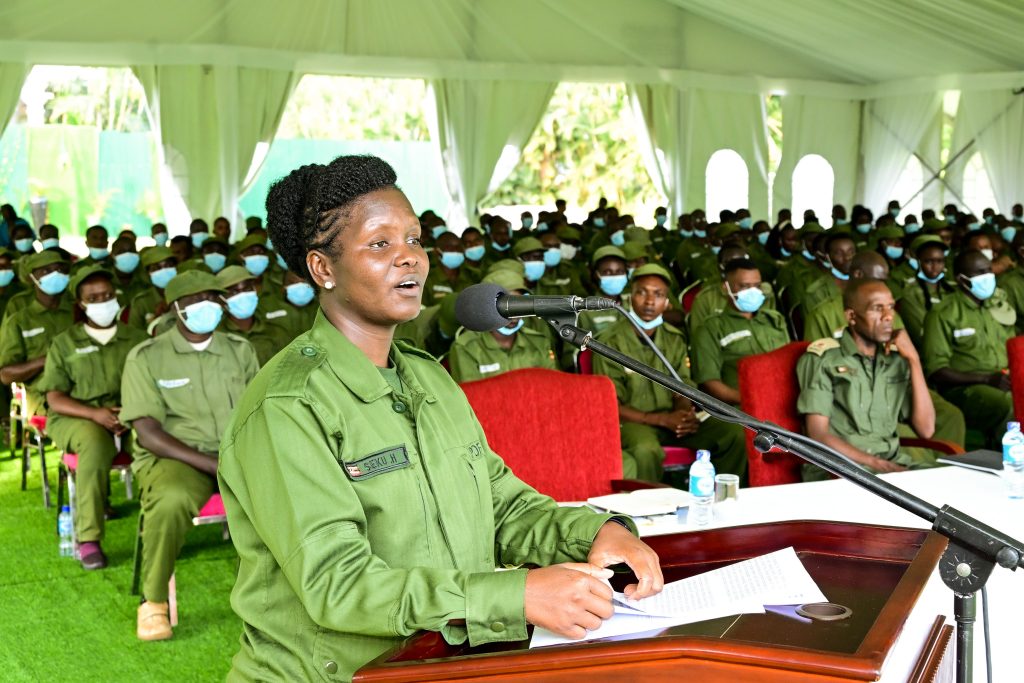
“If Kenya, Tanzania, Rwanda and Burundi buy our surplus and support our prosperity, what do we call that? We found the appropriate name to be Pan-Africanism,” he urged.
“But all this could not happen if you do not become a modern person. Society must change. Society should undergo socio-economic transformation. You cannot get prosperity unless you have patriotism which gets you the market of Uganda, Pan-Africanism which gets you the market of Africa but even if those are there but you don’t undergo socio-economic transformation, you will not manage.”
According to the President, Socio-economic Transformation can be achieved through education and prosperity for all.
“Here we shall get a new society of wealth creators in the money economy. And then the fourth principle is democracy which is clear. In the socio-economic transformation we tell you about the four sectors; commercial agriculture, manufacturing and artisanship, services and ICT.”
On the other hand, President Museveni called on the medical professionals to support his efforts of increasing the budget so that the government is able to create more posts at the health Centres III and IV to ensure that they absorb as many doctors as possible.
He also pledged to financially support qualified doctors to start their private health facilities given the fact that they cannot all be absorbed in government facilities.
“Joining UPDF and police as medical professionals is music to my ears. You are still young and energetic. I can guarantee you, you are most welcome in the army and police anytime. Even now I can recruit you here.”
President Museveni also thanked Ms. Hellen Seku for being active in her office as the Head of the Patriotism Secretariat.
“I want to thank Seku because she is really very active. Since she came to this office, she has brought in dynamism. I also want to thank Kyankwanzi because they have been developing their infrastructure. Yes, we support them but we do so because they remind us,” he said.
“I also want to thank the interns for having the thirst for knowledge that led you to go for the course.”
The Minister for Presidency, Hon. Babirye Milly Babalanda thanked the Patriotism Secretariat under the leadership of Ms. Hellen Seku for undertaking a successful training program for post medical interns.
“This is a unique and strategic category that has been gladly added to our program,” Hon. Babalanda said.
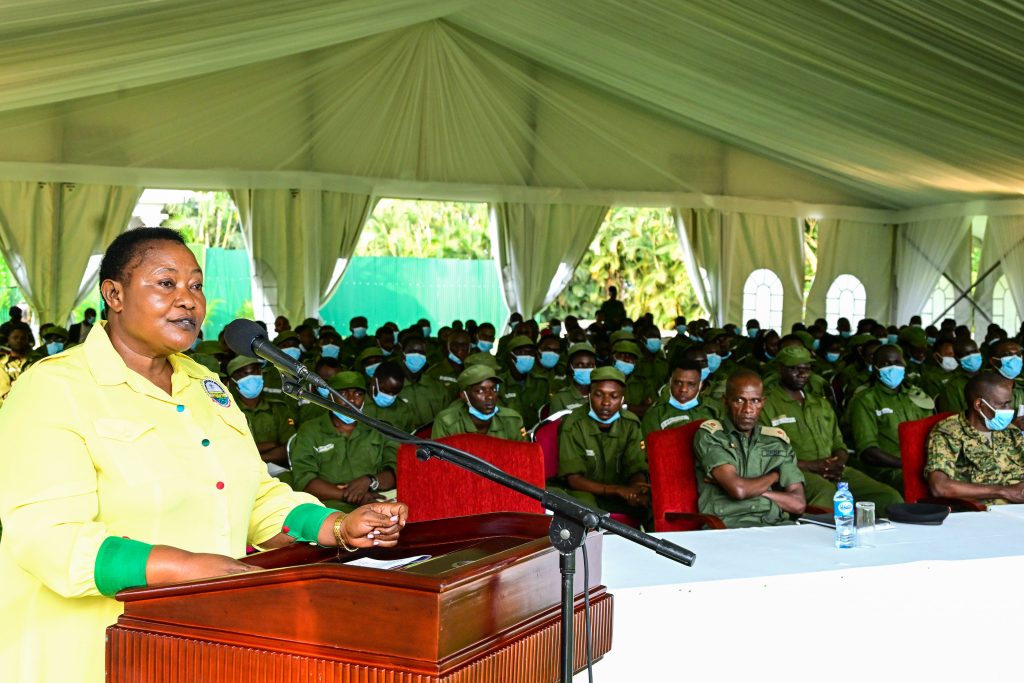
She further thanked the President for always finding time to officiate at the pass-out ceremonies of the patriots.
“Your lectures of opportunity to the patriots have been quite inspiring and memorable. Your Excellency, your presence in spite of your very busy schedule shows how much you value, prioritise and accord special interest to this program. And for this, we are very grateful,” the Minister said.
“Your Excellency, Patriotism is one of the four core principles of the NRM. If participants have understood this one, then it would be quite easy for them to appreciate the other three.”
The Director of NALI, Brig. Gen. Charles Kisembo informed the President that during their stay, the post medical interns exhibited a high level of commitment, resilience and patriotism.
“Your Excellency, when we see these young men and women committed to and enthusiastic about serving their country, we in leadership get convinced that the ideas for which you struggled and sacrificed your youth and many of our colleagues died, were not lost,” he said.
“Many have expressed the desire to join the army. Your Excellency, as a country and UPDF as an institution, we need such patriots who are highly motivated. The course participants attest that the course has enhanced their leadership ability, widened their perception and increased their political consciousness. With the knowledge acquired, they are now a transformative force in their communities and places of work.”

Brig. Gen. Kisembo also thanked the President for being a source of knowledge and wise counsel to the people of Uganda and the youth in particular.
“You remain a beacon of hope to our beloved country. I also want to thank the Minister for Presidency for the unwavering support to the National Leadership Institute and I extend my thanks as well to my sister Seku for the hard-work and resilience in enhancing the Patriotism ideology among the youth.”
The Commissioner for Patriotism – Office of the President, Ms. Hellen Seku thanked President Museveni for approving and supporting the post-medical interns’ training at Kyankwanzi.
“The training started on 14th August, and it ended today on 24th August. Your Excellency, I also take this honour to thank the State House Comptroller who has always been cooperative, and she has never let me down,” she said.
“After the ideological training, the medical interns are now ready to fight, defend Uganda and also contribute to the development of the country.”
Ms. Seku also tasked the medical interns to utilise the knowledge they have acquired from NALI to not only treat the sick but also treat the ideologically disoriented people by sensitising Ugandans on government programs for a better nation.
On behalf of the post medical interns, Mr. David Mugyema extended their appreciation to President Museveni for his unwavering support to medical practitioners and transforming Uganda through education.
“Your Excellency, we are really grateful for your transformative leadership that you have provided to our nation that has enabled Uganda to achieve tremendous development. Your dedication towards improving Uganda’s health sector cannot be over-emphasised. We appreciate the significant strides that have been made to increase salaries of medical workers,” he said.
Mr. Mugyema added that as ideologically oriented and loyal cadres, they are ready to act as agents of socio-economic transformation in Uganda.
